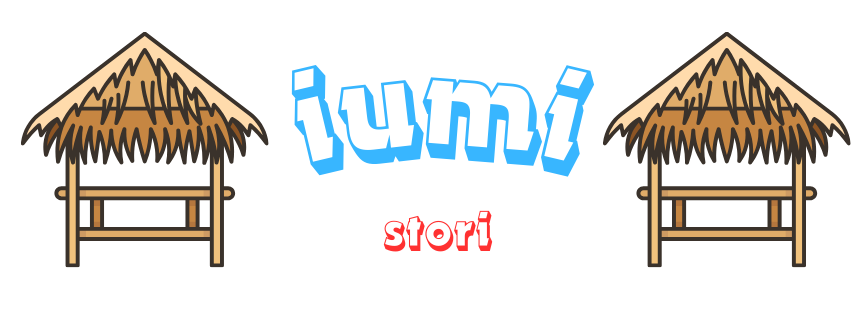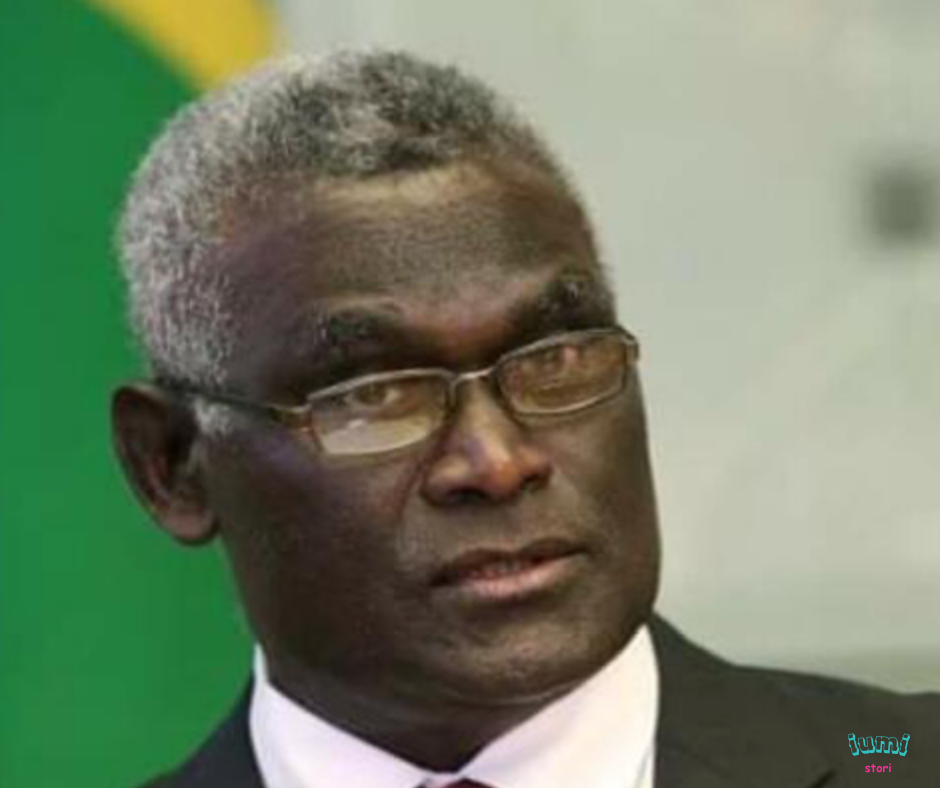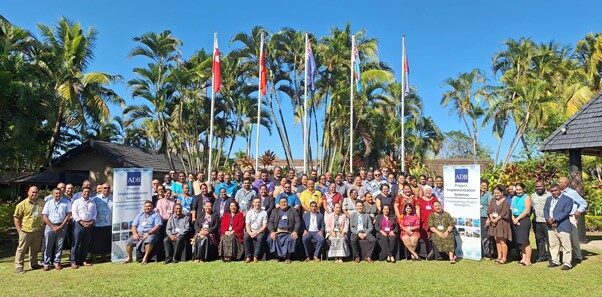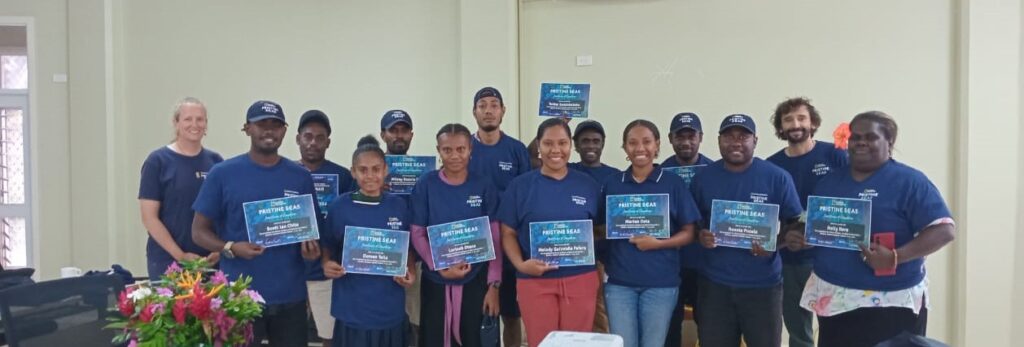
SINU and National Geographic Collaborate On Ocean Science Training.
The Solomon Islands National University (SINU) recently hosted a hands-on training from Monday, August 19th to Thursday, August 22nd, 2022, at the FAFF Conference Room on the SINU Kukum Campus. This special short course was conducted in partnership with the National Geographic Pristine Seas program and focused on data analysis using the R programming language, with a strong emphasis on developing skills in the Solomon Islands in conducting ocean science.
The course used real data collected by Government technical ministries, allowing participants to engage in practical data analysis. Dr. Molly Timmers, a Marine Ecologist from National Geographic, led the course, which aimed to enhance participants’ skills in analyzing data and deepen their understanding of ocean science. Nat Geo’s Data Specialist Juan Mayorga also was engaged in teaching students how to enter, code and analyze data.
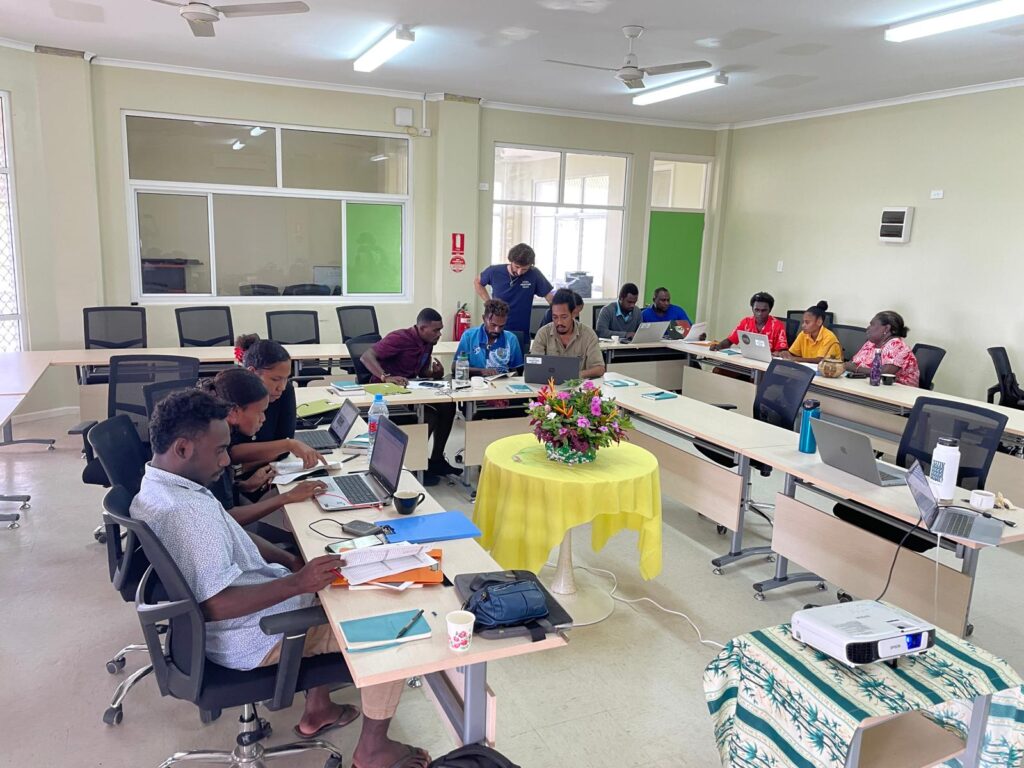
The course was attended by 6 SINU students and 6 technical officers from the Ocean 12 group of Government Ministries charged with implementing the SINOP, the Solomon Islands National Ocean Policy. The sessions covered various aspects of data analysis, including data manipulation, statistical analysis, and data visualization. R, the programming language used in the workshop, is well-regarded for its ability to handle and analyze large datasets, create visual representations of data, and build statistical models. This made it a fitting choice for the workshop’s focus on ocean science.
Throughout the course, participants had the opportunity to work with real research data, gaining valuable experience in applying their skills to actual scientific inquiries. The training aimed to bridge the gap between theoretical knowledge and practical application, providing participants with tools they can use in their professional and academic work. By the end of the workshop, participants expressed how the training had positively impacted their work and studies. They found the course highly valuable for its practical approach and the relevant skills they acquired, which are useful in marine and fisheries management. The experience has helped them understand how to effectively analyze and interpret data, an essential skill for their roles.
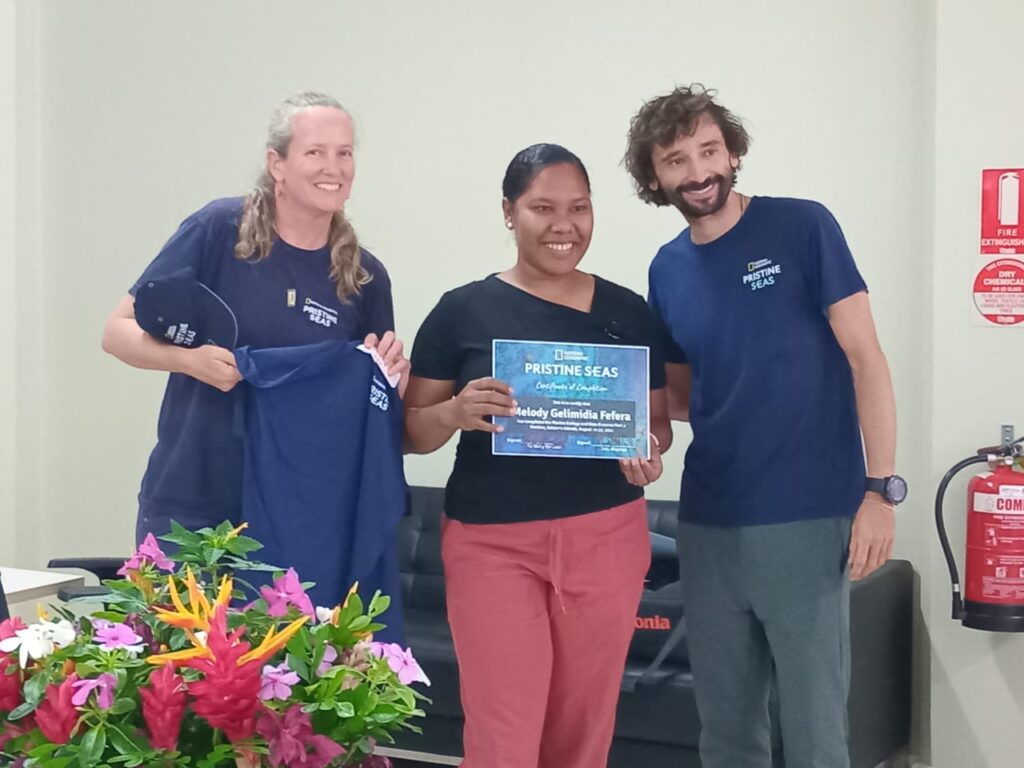
Professor Transform Aqorau, Vice-Chancellor of SINU, noted the success of the workshop, emphasizing its role in enhancing the university’s educational programs. He acknowledged the importance of the collaboration with National Geographic, which provided a meaningful opportunity for participants to develop their data analysis skills and expand their knowledge in ocean science. He stated, “The training on R as a model for fisheries management represents a significant step forward in our commitment to enhancing the scientific capabilities within the Solomon Islands. Through this collaboration with National Geographic, we are equipping our students and technical officers with the essential tools to analyse and interpret complex data, which is crucial for informed decision-making in marine and fisheries management. The hands-on experience gained from working with real data not only bridges the gap between theory and practice but also strengthens our collective efforts in preserving and sustainably managing our ocean resources. This partnership underscores the vital role that education and practical training play in safeguarding the future of our marine environment.”
The Pristine Seas vessel, the ARGO, will conduct a full scientific expedition in the Solomons from October to December this year. Six local technical experts will join the vessel. Daily dives, camera drops, and submarine exploration will collect valuable data from the surface to 6000 feet in depth.
Pristine Seas is a top program of National Geographic, formed to help preserve and conserve the world’s oceans. Since 2008, Pristine Seas has helped establish 27 of the largest marine protected areas in the world, covering a total area of 6.6 million square kilometers — more than twice the size of India. Pristine Seas works with local communities, Indigenous Peoples, government, and partners to protect our ocean, including areas that have been degraded by human activities, to help them recover. Marine life thrives in these marine protected areas and provides multiple benefits to people, from food and coastal protection to jobs and economic revenue. The Solomon Islands Government’s Ocean 12 Group has invited the Pristine Seas Program to help the government understand more about our valuable marine resources and the threats to our coral reefs, our fish, and our way of life in order to protect and preserve our most valuable asset, the ocean.
For more information about the workshop, please contact the School of Fisheries at SINU on 42600.
END///////////////////
